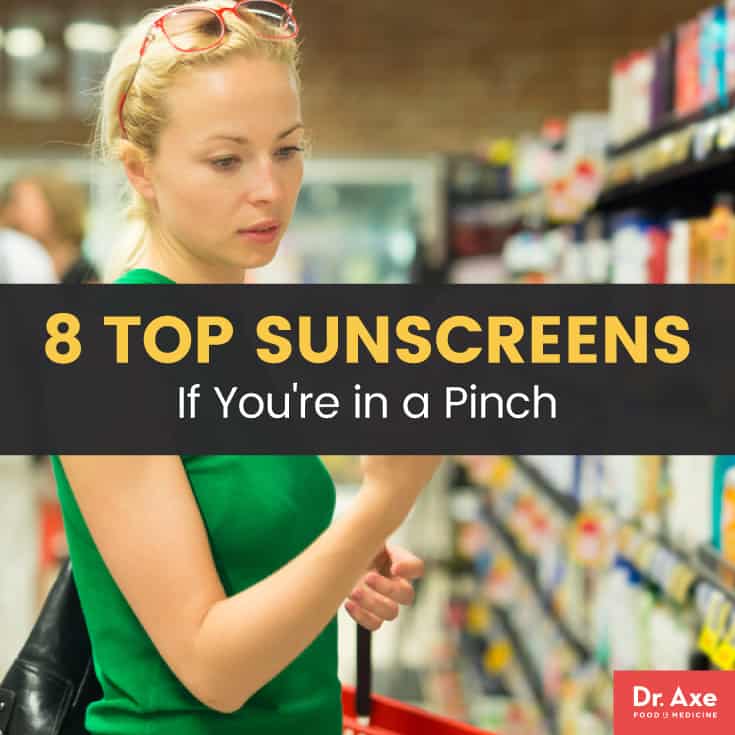This Dr. Axe content is medically reviewed or fact checked to ensure factually accurate information.
With strict editorial sourcing guidelines, we only link to academic research institutions, reputable media sites and, when research is available, medically peer-reviewed studies. Note that the numbers in parentheses (1, 2, etc.) are clickable links to these studies.
The information in our articles is NOT intended to replace a one-on-one relationship with a qualified health care professional and is not intended as medical advice.
This article is based on scientific evidence, written by experts and fact checked by our trained editorial staff. Note that the numbers in parentheses (1, 2, etc.) are clickable links to medically peer-reviewed studies.
Our team includes licensed nutritionists and dietitians, certified health education specialists, as well as certified strength and conditioning specialists, personal trainers and corrective exercise specialists. Our team aims to be not only thorough with its research, but also objective and unbiased.
The information in our articles is NOT intended to replace a one-on-one relationship with a qualified health care professional and is not intended as medical advice.
8 EWG Sunscreen Picks When You’re in a Pinch
July 6, 2017

EWG sunscreen ratings serve as a lifeline for people who want to use sunscreen without all of the toxic ingredients. For more than a decade, EWG (the non-profit Environmental Working Group) takes on the annual task of sifting through sunscreen label claims, ingredient lists and scientific studies analyzing what’s really in those sunblock bottles.
I know I’m grateful for the organization’s annual report highlighting the best sunscreens (and the most toxic ones to avoid). Unfortunately, many of the highest-rated sunscreens aren’t readily available in chain grocery and drug stores, meaning it can me a little tricky finding a safe and effective sunscreen if you’re on the road and forgot yours at home. (Did I mention that in America, 75 percent of sunscreens are toxic and/or don’t work?)
With that in mind, the EWG sunscreen team is at it again, this time releasing a list of the safest, most reasonably priced sunscreens that are widely available in box stores around the country.
Now, to be clear, I believe the sun can be incredibly healing in the right dose, especially when it comes to avoiding vitamin D deficiency. But you don’t want to overdo it and suffer a damaging burn.
So the next time you find yourself in a store looking at dozens of different sunscreen options, know that one of these picks on the EWG sunscreen list is better than many of the other options. (You can also use EWG’s handy database to see how your favorite sunscreen ranks.)
EWG Sunscreen List: Top 8 Widely Available, Safer Sunscreens
EWG scientists tapped its 2017 Guide to Sunscreens to ID a short list of the sunscreen products providing the biggest bang for your buck.

Related: Best Mineral Sunscreen to Use (Plus Benefits & Comparisons)
Using the 2017 report, scientists compiled a list of sunblock that:
- Ranges in price from $10 to $20
- Received “best” ratings from the EWG sunscreen guide
- Are widely available in mainstream retailers and box stores
Here is the list of EWG sunscreen picks that are widely available:
- Aveeno Baby Continuous Protection Sensitive Skin Lotion Sunscreen, SPF 50
- Babyganics Mineral-Based Sunscreen Lotion, SPF 50+
- Bare Republic Clearscreen Sunscreen Gel, Sport, SPF 30
- Bare Republic Mineral Sunscreen Lotion, Baby, SPF 50
- Blue Lizard Australian Sunscreen, Baby, SPF 30+
- CeraVe Baby Sunscreen Lotion, SPF 45
- Goddess Garden Organics Facial Natural Sunscreen Lotion, SPF 30
- Neutrogena Pure & Free Baby Sunscreen, SPF 50 (1)
Final Thoughts on EWG Sunscreen Picks
- There are dozens of highly rated sunscreens in the EWG sunscreen report, but this list includes eight that are widely available with a cheaper price point.
- The idea is if you forget your sunblock or if your favorite is expired, you can find one of these safer picks in most locations.
- EWG offer’s a Healthy Living App to help you make safer, healthier household product picks, too.
- Sunscreen should not be your first line of defense against the sun. In fact, avoiding peak sun overexposure, wearing sun-protective clothing and hats and spending some time in shade are better measures.
- Many of the more unsafe sunscreens contain hormone-disrupting chemicals, retinol ingredients that could actually promote skin cancer tumor formation and/or don’t work well.


